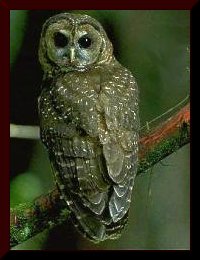 |
Speeches of Great Chiefs
©
2000
Claywoman
Throughout history, there were great orators and poets, Plato, Socrates, Shakespeare, and Lincoln. These men we acknowledge with powerful words, words that changed the history of man and helped all of us with our growth forward. All of them piqued our consciences with their wisdom, allowed all of us to search our souls for agreement. These men and many more quoted today in countless halls of learning. We all remember memorizing passages from their speeches and savoring their words. This writer remembers the joys of memorizing stanzas written by Shakespeare, Browning, and even Longfellow, she remembers cherishing their poetry and wisdom that lasted through centuries. How many of us can recite the entire Gettysburg Address?This writer knows she can, to this day she remembers John Fitzgerald Kennedy's inaugural speech. She remembers the power of the words of Martin Luther King in his I have A Dream Speech. The emotions all these stirred within her breast, speeches and writings affecting her words today, tomorrow, and forever. There are speeches given with great passion long ignored and discarded, speeches given by some of the great Indian Chiefs, Crazy Horse, and Chief Joseph.
History recorded them, and filed them away with other antiquities in dusty boxes and hoped they disappeared. This writer knew some of them at least some passages from them, but forgotten until recently. She purchased a CD by Robbie Robertson and The Red Road Ensemble. This is a powerful CD because it brings those of us who are fortunate to be Native, a renewed sense of pride in our leaders' words.
Robbie Robertson took words of some speeches and put them to music, giving each a life of its own, and a power that stays with the listener for hours. He has written word for some songs dealing with massacres such as Wounded Knee. This writer wants to give you some of these words, passages that have real meaning to Native American People whether they are Comanche, Blackfoot, Lakota, Dakota, Cherokee, or Salish.
In Mr. Robertson's song Ghost Dance, he speaks for the three hundred Sioux massacred at Wounded Knee in 1890. Massacred for their religious freedom to dance and listen to the Indian Prophet, Wovoka. Wovoka taught to dance the Ghost Dance and to believe in the old ways, possibly the way of life always known would return. For this belief, he was killed along with three hundred old people, women, and children in one day of suffering and left to freeze and rot on the prairie. The words chosen for this song are powerful words, words that proclaim the feelings of that day in our history.
"The crow has brought the message
To the children of the sun
For the return of the buffalo
And for a better day to come."For a people with nothing and starving they show the desperation of a people willing to grasp at anything for survival. Another passage speaks of religion foisted upon a people with their own beliefs, their own Gods and their own traditions. Traditions viewed as pagan and wrong.
"You can kill my body
You can damn my soul
For not believing in you god
And some world down below."These two stanzas show the pride never quashed, it simmers beneath the surface to rise again and blossom in the sunshine. The next song this writer wants to show you is entitled "It Is a Good Day to Die". Again, this deals with a massacre. The words bring tears to the eyes when you realize this song refers to the Sand Creek Massacre. Robbie Robertson again captures the strength and determination of the Indian people.
"It is a good day to die
Oh my children dry your eyes
It is a good day to die.What law have I broken?
What wrong have I done?
That makes you want to bury me
Upon this trail of blood."The third and last cut this writer will deal with in this essay is a song taken directly from a speech delivered by Chief Joseph of the Nez Perce Nation. Bear with me, for this writer wishes to give you all the words since trying to eliminate any of them, negates the strength of his words.
"Perhaps you think the Creator sent you here to dispose of us as you see fit. If I thought you were sent by the Creator, I might be induced to think you had a right to dispose of me. Do not misunderstand me, but understand me fully with reference to my affection for the land. I never said the land was mine to do with as I choose. The one who has a right to dispose of it is the one who has crated it. I claim a right to live on my land and accord you the privilege to return to yours.
Brother we have listened to your talk coming from our father the great White Chief at Washington and my people have called upon me to reply to you.
And in the winds which pass through these aged pines we hear the moanings of their departed ghosts and if the voice of our people could have been heard. That act would never have been done. But alas though they stood around, they could neither be seen nor heard. Their tears fell like drops of rain.
I hear my voice in the depths of the forest but no answering voice comes back to me. All is silent around me. My words must therefore be few, I can now say no more."
This writer finds great comfort in these words written not by great orators standing on a pulpit or podium, but said within the hearing of a few. From those words you hear the voices of the elders and see them standing in their strength and hope for a time when the earth will return to the Creator's playground.



